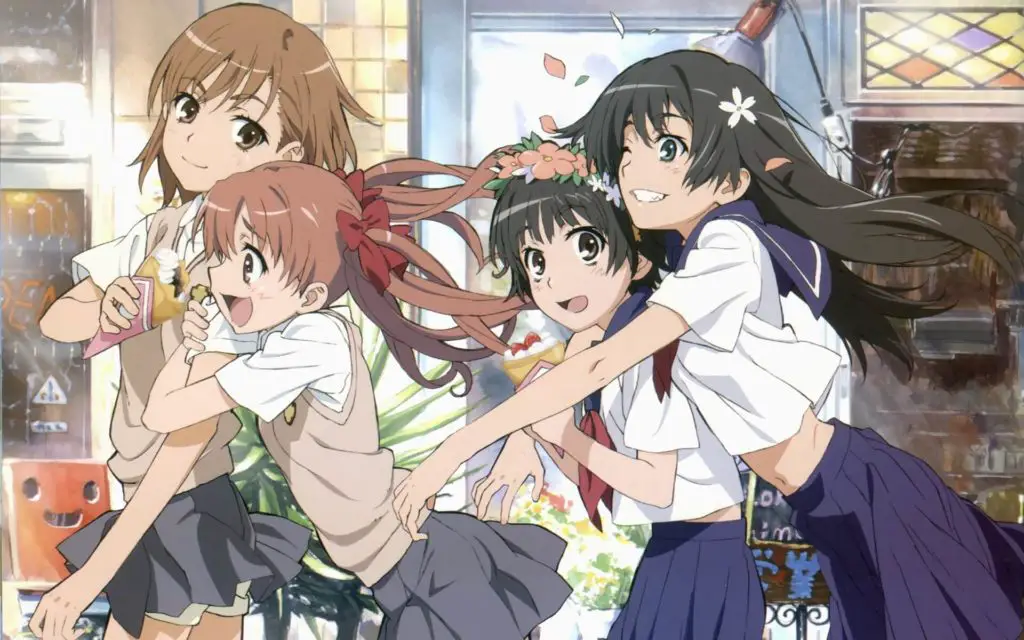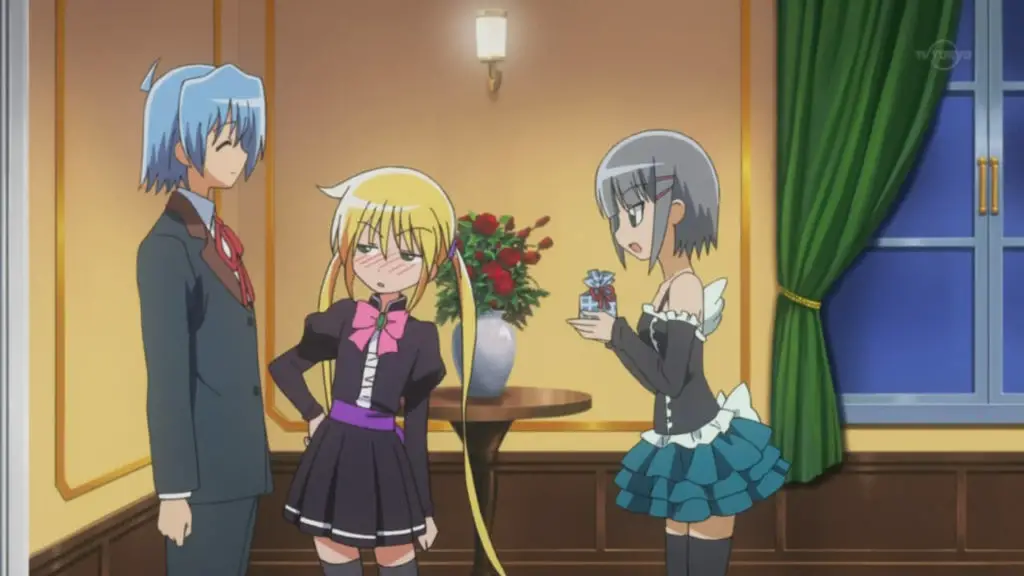In anime, it’s quite common to see a girl running down a corridor while a butler or maid calls out to her, “Ojou-sama!”
Oh no! You forgot to bring your book, wallet, phone, and breakfast with you!
She eagerly rushes out the door, filled with excitement to either go to school or meet up with friends.
What does Ojou-sama mean?
Why not use her proper name or last name when referring to her?

Let’s dive into the fascinating world of linguistics and explore the true essence of Ojou sama.
In Japanese, the term “ojou” translates to “daughter.” When used on its own, it typically suggests that the daughter in question belongs to someone else.
Therefore, people often use the polite suffix “san” to show respect.
However, it can also refer to a young girl.
When you think about the historical context of Japan and the unequal treatment of women compared to men, using the term “ojou-san” can be seen as perpetuating outdated gender stereotypes.
What is the most effective approach to handle this situation? Please consider adding the honorific suffix “-sama.”
You are elevating that person’s position while keeping politeness and friendliness by attaching it and coining the word “ojou-sama.”
When does ojou-sama come into play?
Well, a quick look is frequently in really well-to-do households.
In addition, Ojou-sama hints that the girl comes from a wealthy household.
Where can we find a female who looks like this?
Almost everywhere, and in almost every anime.
Ojou-sama is an established archetype.
In this post, we’ll look at where and how you can discover and see ojou-sama, as well as how their presence influences the relationships of others around them.
Updated on May 23, 2024, by Govind: “Ojou-chan” is a term in Japanese that is used to refer to a young lady or girl, usually in a polite and affectionate manner. It’s a way of addressing someone who is young and female in a respectful and friendly manner. “Ojou” is a word in Japanese that translates to “young lady” or “daughter.”
The suffix “-chan” is a term of endearment commonly used to address someone in a friendly or affectionate way. It is often used when talking to children or close friends. So, “ojou-chan” can be roughly translated as “young lady” or “little miss” in English. It’s a word that’s used to show a sense of warmth, fondness, or politeness when talking to a young girl.
How to Recognize an Ojou-sama?
You’ll recognize an ojou-sama when you see one.
They walk with purpose and are keenly aware of their surroundings.

Don’t be deceived by their leisurely walking pace.
They know where they’re going and when they’re meant to arrive.
They will also not be questioned.
They are omnipresent, exemplifying grace, innocence, and class.
However, such naivety can be dispensed a little too liberally at times.
They can, however, be used as a joke, especially if they don’t understand or aren’t paying attention.
Where would we be able to find one? Oh, yes! Oshiete, O Galko-chan.
Oshiete! Galko-chan (Please tell me! GALKO-chan)

- Episodes: 12
- Aired: January 2016 – March 2016
Oshiete! Galko-chan follows three female characters: Galko, a girl-looking girl, Otako, a bookish-looking girl, and Ojou, an Ojou-sama.
They address such topics as whether riding a horse can break your hymen, whether your eyebrows are the same color as your pubic hair, and breastfeeding and parenthood issues.
Doesn’t it sound intriguing? Well, it’s cheery and bright, and Galko-chan, strangely, presents things in such a way that you want to remain and listen more while chuckling to yourself, regardless of the issue.
This anime is set in a school and focuses on the dialogues that students have while learning more.
She is an Ojou-sama, as her name suggests.
She is well-to-do and well-intentioned, and she frequently participates in debates with Galko and Otako…
Unfortunately for her, she never appears to pay attention to the context at hand, and everyone starts misinterpreting her right away, while she never realizes what she is saying until it is too late.
The episode where they discuss the hymen being able to be shattered while riding horses is a good example.
Ojou, who isn’t paying attention and doesn’t understand the context or meaning, blurts out that she has never bled while riding a horse.
The males all presume Ojou is loose and filthy for declaring she isn’t a virgin right away.
Ojou is entirely misunderstood, but she manages to make the audience laugh out loud.
In addition, Ojou enjoys delectable handcrafted lunches prepared by their house’s personal chef.
Check her out because she’s one of the rare forms of Ojou-sama!
They are most Probably Rich and & Go to an All Girls’ School
As previously said, another important stereotype of an ojou-sama is an anime character who attends an all-girls school where allegedly the manners are impeccable, everyone is kind, and everyone is really close.
As so, there are many ojou-sama.
They are well-off, or rather, their family is well-off, and this permits them to attend boarding school.
How can we keep our daughters safe from the outside world without being creepy?
Let’s make it an all-girls affair! Because they need to maintain their image, practically all of the girls at the school are demure, kind, and sweet in shows like Maria-sama ga miteru or Maria Holic.
To Aru Kagaku no Railgun (TA Certain Scientific Railgun)

- Episodes: 24
- Aired: October 2009 – March 2010
Railgun is a spin-off of the great meta-series To Aru Majutsu no Index (A Certain Magical Index), and it revolves around Mikoto Misaka, the city’s railgun and the third greatest esper in all of Gakuen city.
Railgun follows these four ladies and their experiences as they fight crime in their city, accompanied by their best friends, loving Judgment officer Kuroko Shirai, Level Zero Ruiko Saten, and Sweetheart Kazari Uiharu.
Did we forget to explain that this is a city and universe where certain people may use their abilities to fight crime while others use them to commit it? It’s certainly intriguing!
Mikoto Misaka is the series’ principal ojou-sama. Mikoto tries her hardest to enjoy her daily existence, despite Kuroko’s continual praise and devotion.
She attends Tokiwadai, a prestigious all-girls school where she even shares a room with Kuroko.
Kuroko addresses Mikoto only in polite Japanese, which is another sign of Mikoto’s position.
Mikoto, on the other hand, is a great “Ojou-sama” since she never flaunts her wealth or rank in front of others.
This is what a bad ojou-sama or an ice queen ojou-sama looks like.
An Ojou-sama with decent manners is usually a good Ojou-sama.
If you are looking for a good stereotype
While it’s nice to look at the big picture and see all of the numerous variants, sometimes the best approach is to focus on the main idea.
Money.
Wealth.
You’ll inevitably make a mistake.
Tsundere threw in for good measure.
What could make an ojou-sama journey home more appealing?
Hayate no Gotoku! (Hayate the Combat Butler)

- Episodes: 52
- Aired: April 2007 – March 2008
Hayate Ayasaki isn’t having the best of luck. His parents have racked up massive debt and are dumping it all on him.
By happenstance, he saves a young girl who is about to be kidnapped.
He had no idea that she is Nagi Sanzenin.
Nagi offers him a job as her personal butler after a few more clichés are played out.
For what purpose? Oh, her opulent mansion, her pet tiger, a crew that waits on her hand and foot, and so much more.
Nagi is the archetype’s quintessential ojou-sama and the embodiment of the archetype. Why?
She is, after all, a savvy entrepreneur.
She does, after all, have a cash-flowing mansion.
She has a tiger as a pet. She has a butler and a maid to serve her, but what does she require?
There’s another one.
Why?
Because she is capable.
Nagi has Hayate work for her and protect her from anyone who would want to harm her.
What else is there to say?
Oh all, she’s so wealthy that purchasing the national debt of most big nations would be a drop in the bucket.
How is the transaction made more appealing?
She has a tsundere streak in her.
All ojou-sama have this flaw.
She will have to obtain the items she desires at some point.
She accomplishes this by acting shy and making others look foolish.
Unfortunately, she does have a problem being true to herself.
That isn’t an issue because, despite skipping school entirely, she is a hyper-intelligent young lady who has already skipped three grades from Toyko’s most prominent school. So cross everything off your to-do list because Nagi has accomplished it!
Nagi isn’t the kind of ojou-sama you want to mess with; she’s the kind you want to serve.
Conclusion
Ojou-sama is a wonderful person who is totally nice.
They should, in theory, be normal. That isn’t to imply that you won’t come across a few rotten apples.
Ojou-sama is always brimming with cash, good manners, grace, and other goodies!
Which ojou-sama is your favorite?
Do you have a couple of them?
Please let us know in the comments section below!
Until the next time, friends!
So, what do you think of this article? Tell us in the comment section now and share it with more Ojau fans and don’t forget to bookmark MOW.
